If you are the type of person that prefers going for leisurely vacations, staying in nice hotels and spending time on beaches and shopping than this post isn’t for you. But if you like traveling, exploring places and meeting people than you probably know that the kind of experience you get depends completely on you – your decisions, your mindset, the company you keep. So why do you still make the same mistakes?
Having No Idea Where You Travel To
Before going to Georgia, I read Lermontov’s “Hero of our Time” (whose main hero stays in Caucasus), watched two Georgian movies, listened to Georgian traditional music and of-course read through Lonely Planet’s guide. This “immersion” in the culture of the place we were going to gave me a sense of Georgia and it’s people, which, once we arrived there, made some things look familiar and clear. It’s a special kind of joy to be drinking traditional Kakhetian wine, knowing that Lermontov enjoyed it 150 years before you.
Traveling without any knowledge of the place you go to is like going to a modern art museum without understanding something about the context of the life and work of the artists. It may be entertaining, but it usually leaves you perplexed, with a shallow perception of what you saw, muttering “what’s the big deal” to yourself on the way home.
Trying To See As Much As You Can
The popular Trans-Siberian Railway trip is a good example of “see as much as you can” attitude. A thousands kilometers long railway that allows you to “see Russia, Mongolia and China”, it’s the quintessential traveling “anti-pattern”. Having met people that did it without making any significant stops, I saw that aside from the experience of the ride itself (and for some that may be the point) they knew or understood little about the places they went through.
Seeing isn’t understanding. And seeing without understanding is an empty experience that leaves memory but not impression. When traveling in Batumi and seeing the intricate architecture of its renovated city centre we were especially impressed by how it compared to itself just several years ago, before Georgia’s president Saakashvili started investing in it. This urban and political context allowed us to see Batumi as a moving and living place, not just a pretty snapshot.
To be moved by what you see, to be touched by the beauty or the sadness of a place or an event, you need to invest in it your time and effort. Seth Godin writes beautifully about it.
Not Meeting New People
The most memorable moments in my trips have been meeting and getting to know random people, both locals and travelers. Museums, temples, archaeological sites, galleries – they all tell a story of the place and it’s culture. But all of these stories may be less interesting and engaging than a story of single person you meet in a pub, on a train or during a hike.
Traveling in Armenia, one day we hiked to the ruined Havuts Tar monastery. A desolate and eerie place, we weren’t surprised to see no one there. On our way back we stumbled upon a local man and his daughter, who invited us to share their lunch. As we sat to eat lavash with vegetables, Arevik started telling us about her father. As a child his mother brought him to the monastery when he was sick and since then he comes here for healing. This day was his birthday, but they chose to flight from the family commotion in Yerevan for a serene visit in the monastery. Of course I had to drink with him his homemade “medicine”. After a 30 minutes stop we parted with Arevik and her father and picked up the trail. But long after leaving Armenia, it’s churches and temples and we still remember fondly the simple kindness of Armenians in the countryside.
Not Supporting Local Businesses
How you spend your money when traveling makes a difference. If you choose traveling with large travel companies and staying in chain hotels than most of your money doesn’t go to the local population. But if instead you stay in homestays, hire local drivers and buy home-made products your money goes directly to local small businesses. In addition to being a much cheaper and more authentic alternative, it creates an incentive for the local population to improve the service, showing the economic value of tourism.
When traveling to Kazbegi, we stayed in a local family’s homestay. When we said we are from Israel, our host Nazi happily told us that Israelis are among her most frequent guests. So much that she decided to add a kosher kitchen to her house. She went especially to Tbilisi to consult with a Rabbi about it. The Rabbi talked her out of it (only a Jewish person can maintain a kosher kitchen). But she still keeps separate pots for milk and meat foods, just in case her guests want to cook a kosher meal.
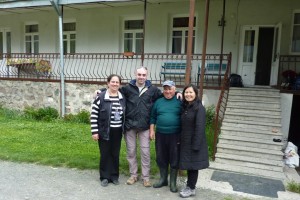
So next time you pack your bags, read a book about that place before leaving, make an effort to understand what you see, talk and meet new people and support locals with your wallet.
Do you have any other advice for mindful traveling? Would love to hear it in the comments.
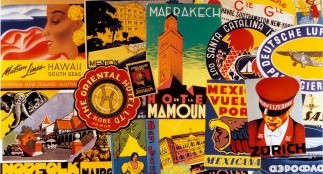
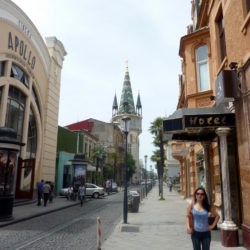
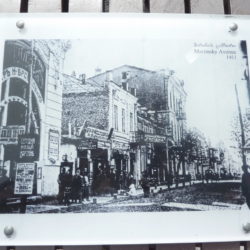
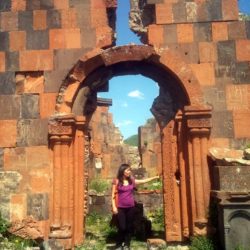
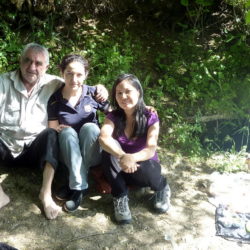

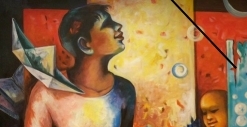
Каждый человек знакомится с новым таким способом, который ему ближе. Очень рада за Вас с Оксаной,что вы изнутри узнали Армению и Грузию, встретили гостепреимных жителей, которые вам поведали свою историю страны, о традициях и нравах. Зачастую люди просто боятся самостоятельно путешествовать, поэтому предпочитают приобретать туристические путевки. Ты верно подметил,что по турпутевке страну изнутри не узнаешь. И вы большие молодцы, что сами спланировали свое путешествие, что познакомились с новыми людьми, увидиле красоты двух стран, отдохнули и набрались сил!